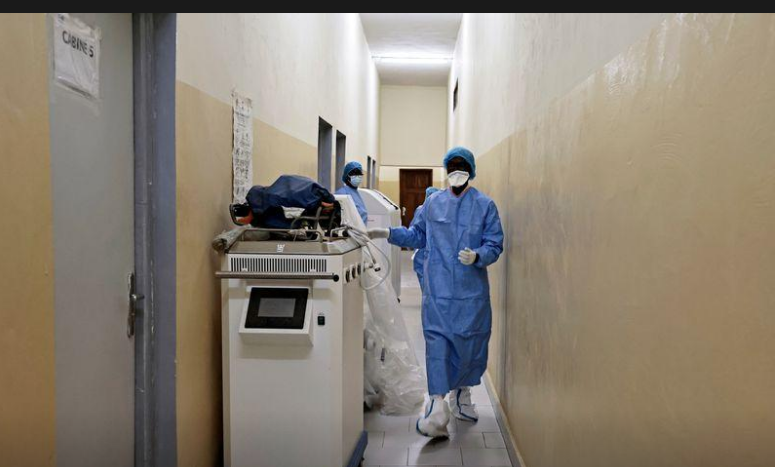
By CGTN Africa

Senegal’s health ministry said Monday that hospitals in the capital Dakar were “close to saturation” due to a surge in COVID-19 patients, with overworked medical personnel facing burnout.
The West African country has suffered a third wave of virus infections in recent weeks, with cases rising from a few dozen a day late last month to about 1,700 in July.
Health authorities have registered most of the new cases in Dakar, a city of over three million people.
The national director of public health institutions, Ousmane Diallo, told AFP that the third wave had been more severe than the previous two.
“We are overwhelmed and close to saturation, with almost 99 percent of beds occupied in Dakar,” he said, explaining that the city has 602 hospital beds.
Medical staff in the capital are “very tired and burned out,” Diallo added.
Bed occupancy stands at about 45 percent in the rest of the country, he said.
A surge in coronavirus cases is also causing delays in receiving COVID test results in the poor nation of 16 million people.
Health ministry spokesman Mamadou Ndiaye said that labs were “overwhelmed because of high demand.”
Senegal has recorded over 57,000 cases since the start of the pandemic, of which more than 1,200 have been fatal.
There are fears that last week’s Muslim festival of Eid al-Adha, which saw many people travel to meet family, will increase the caseload.
Senegal’s vaccination campaign resumed on Saturday after an interruption, with the delivery of 151,000 doses of the Johnson & Johnson vaccine.
About 640,000 people have received at least one dose of a COVID-19 vaccine so far.
President Macky Sall has threatened to close borders and restrict internal travel should the health situation deteriorate.
He has so far avoided imposing strict measures to curb the virus, relying instead on personal responsibility.
A curfew and limits on gatherings were lifted after riots broke out in March.
With input from agencies